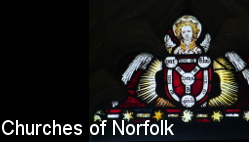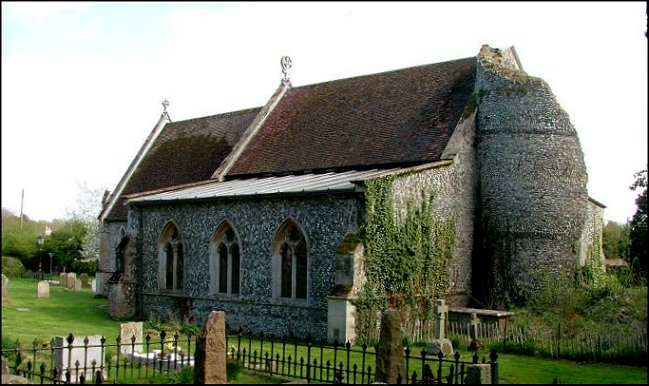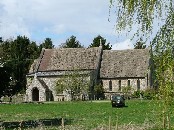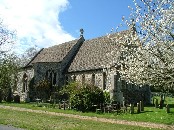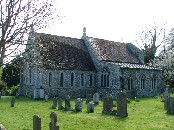| |
|
All
Saints, Cockley Cley
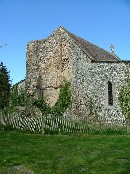 |
|
In
this strangely remote area to the west of
Swaffham, Cockley Cley is a pretty little village
on both sides of the little River Gadder. The
church sits to the west of the intriguingly named
Twenty Churchwardens pub, which I assume
refers to a type of clay pipe. All Saints was
once a round towered church, but on 29th August
1991 the tower collapsed. This was unfortunate,
because it was pretty much the only surviving
medieval work in the whole church, Phipson's
restoration of the 1860s being more of a total
rebuilding. The south doorway also
survived Phipson's attentions, and inside there
are a number of other features, but externally it
is now to all intents and purposes a Victorian
church. Phipson was an architect who observed the
letter rather than the spirit of whichever idiom
he worked in, and working here in an Early
English style he has given us plenty of lancets,
but a fairly stark interior.
|
The
darkness allows the three great lancets in the east
window to throw a ghostly light through the pointed
chancel arch, and there is plenty of space up there in
the east, but the nave seems over-cluttered, despite
Phipson's matching of the original south arcade with a
new one on the north side.
The church
is a good shape, but can never really look its best with
all those Victorian benches. Early English architecture
enclosed open spaces. How much better it would look if
they were replaced with simple wooden chairs.
| Still,
this is a welcoming place, open to visitors and
of interest for the patronage of the Roberts
family of Cockley Cley Hall. Theirs is the faux
screen forming a vestry in the north-west corner
of the nave. There are some absolutely
splendid Roberts memorials in the chancel, which
I decided was the best part of the church. They
were former Master Cutlers of the city of
Sheffield, and I realised that I had come across
them before. As a student living in Sheffield
some 25 years ago, I had taken part in the mass
protests against the visit of Margaret Thatcher
to the city during the Falklands War. It seemed a
long time ago now.
|
|
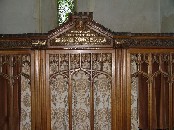 |
|
|
|
